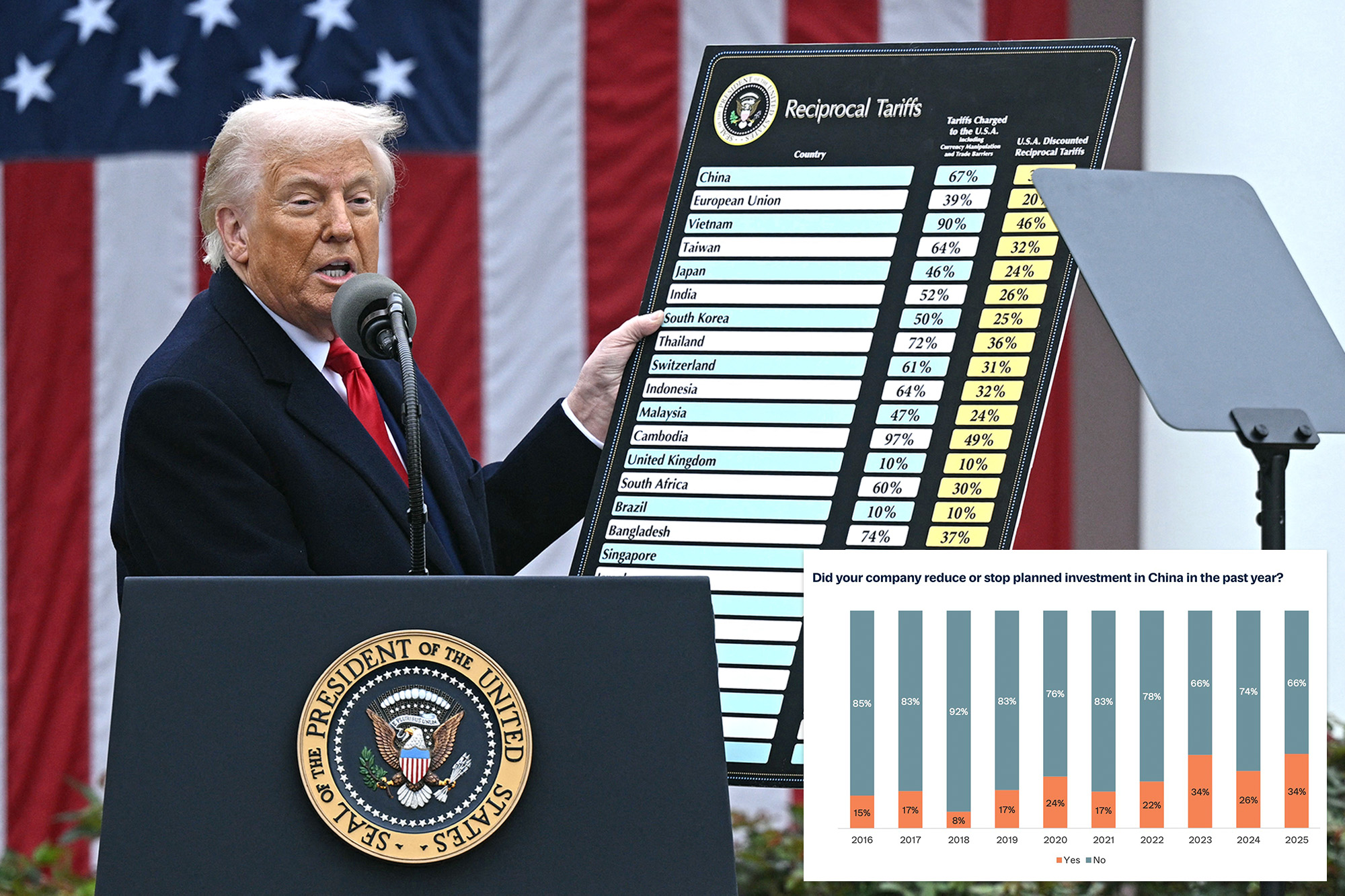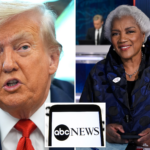Nearly three in four American companies with operations in China plan to remain in the Communist country — with more than half planning to expand their investment there — despite President Trump’s tariffs, according to a new survey.
The poll by the US-China Business Council found that tariffs have surged to their second biggest concern — trailing only relations between the two trade rivals — after ranking eighth on the list of business challenges last year.
Yet 73% of the more than 270 American companies that do business with China said they have no plans to move, according to the survey by the nonpartisan, nonprofit association.
The poll also found that 52% said they have plans to invest in China this year..
“Simply put, we’re trapped,” Judd King, founder of Los Angeles-based Starlux Games, which makes glow-in-the-dark outdoor toys using LED components from China, told Politico.
“There’s no ‘wait-and-see’ anymore. It’s just we have to pay [the duties].”
The White House slapped a 30% tariff on imports from China, on top of 25% that was already in effect, while the two sides continue to negotiate on a final deal.
More than one-third of US companies have paused or scaled back planned investments in China this year, citing rising costs and unpredictability, the survey found.
Nearly 40% say they are actively reorienting supply chains — though only about 20% of them are considering shifting any of that production back to the United States.
That gap highlights the difficulty in “re-shoring” US manufacturing — a central premise of Trump’s tariff policy.
“None of this stuff is going to be reshored,” Cameron Johnson of Shanghai-based consultancy Tidalwave Solutions told Politico.
“The US doesn’t have the ecosystem, the people, the tax incentives or the money.”
Kush Desai, a White House spokesperson, pushed back on that notion.
“Industry leaders ranging from Apple to NVIDIA to Merck have pledged trillions in historic investment commitments to again Make in America thanks to President Trump’s tariffs, tax cuts, energy abundance, and deregulation,” Desai told The Post on Monday.
“President Trump has made America the hottest country in the world, and businesses are lining up to get in on the restoration of American Greatness.”
While companies plan to stay put in China, the survey paints a grim picture of its economy, warning that a slowdown is exposing deep structural flaws.
Nearly three-quarters of American companies there cite weak demand as their top concern, with 42% now saying they’re hammered by industrial overcapacity — up from just 25% a year ago — and most reporting falling prices.
The report also flags a misallocated housing market and an underfunded social safety net that are squeezing households and fueling deflation.
The USCBC survey found that over 80% of US firms invest in China to serve the Chinese market and nearly all believe they cannot remain competitive globally without that presence.
Meanwhile, US companies that once pursued a “China-plus-one” strategy to diversify supply chains now say they’re stuck paying more everywhere else as tariffs sink in.
“The smaller firms that are just buying goods from China aren’t going to get away with this for much longer,” James Zimmerman, a former chair of the American Chamber of Commerce in China, told Politico.
“Suppliers are saying, ‘My prices are going up, you’ve got to pass this on to the American consumer, otherwise we’re out of business.’”
Big-box giants like Walmart, Target and Home Depot have admitted tariffs are pushing up costs.
Analysts at Telsey Advisory Group say a Barbie doll at Target is nearly 43% more expensive since April — when Trump first announced his “Liberation Day” policy.
Relief for businesses could come by way of the courts.
A federal appeals court on Friday ruled in a 7–4 decision that Trump’s sweeping “reciprocal” and punitive tariffs were illegal because the president overstepped his authority under the International Emergency Economic Powers Act, stressing that only Congress can levy such taxes.
The decision, however, was stayed until Oct. 14. The Trump administration has vowed to appeal to the Supreme Court, setting up a high-stakes showdown.
That’s too late for some companies that have already gone belly up. Home goods retailer At Home Group and toy and stationery supplier IG Design Group both declared bankruptcy this summer, blaming tariffs for strangling revenues.
Executives say that uncertainty is often worse than the tariffs themselves.
“They’re paralyzed,” Ker Gibbs, a restructuring advisor and former head of the American Chamber of Commerce in Shanghai, told Politico.
“It’s not the tariff itself. It’s the uncertainty over whether the tariffs are coming up or going down, and that’s what leads to the paralysis.”










